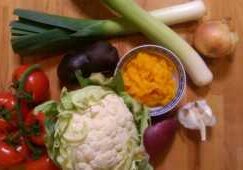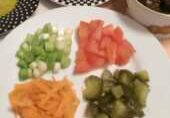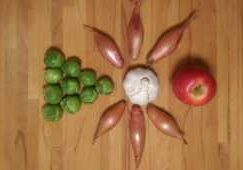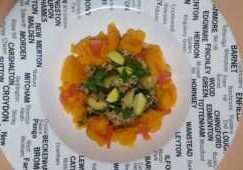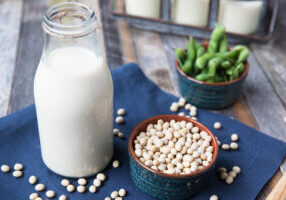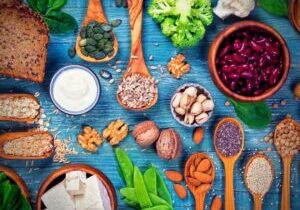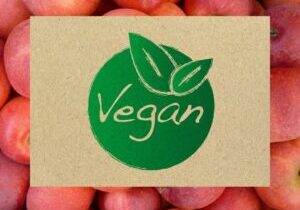One of the four most commonly given reasons for adopting a fully plant-based diet is that it is a natural progression from a vegetarian way of eating. It makes sense! Having removed meat from the diet, it is logical – and easy – to finish the job and remove all animal products.
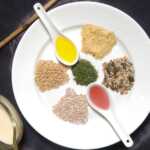 This was certainly the case for the founders of The Vegan Society, in 1944 Britain. At the time, they were members of The Vegetarian Society but realized that dairy products actually subsidised the meat industry and were inextricably linked to it. They formed a sub-group, calling themselves ‘non-dairy vegetarians,’ and shortly after established The Vegan Society. The word ‘vegan’ was coined because it was ‘the beginning and the end of VEGetariAN.’
This was certainly the case for the founders of The Vegan Society, in 1944 Britain. At the time, they were members of The Vegetarian Society but realized that dairy products actually subsidised the meat industry and were inextricably linked to it. They formed a sub-group, calling themselves ‘non-dairy vegetarians,’ and shortly after established The Vegan Society. The word ‘vegan’ was coined because it was ‘the beginning and the end of VEGetariAN.’
If you currently eat a vegetarian diet, it is likely that you will have had some thoughts along these lines already. Be assured, you have done most of the hard work already!
You’ve Come So Far
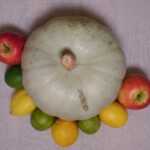 Moving from an omnivorous to a vegetarian diet is a big step. Not so long ago, it was socially awkward because it was rarely catered for and because it always seemed to offend someone. It was often impossible to tell if packaged foods were vegetarian or not; and eating out was a matter of choosing between stuffed green peppers and stuffed red peppers.
Moving from an omnivorous to a vegetarian diet is a big step. Not so long ago, it was socially awkward because it was rarely catered for and because it always seemed to offend someone. It was often impossible to tell if packaged foods were vegetarian or not; and eating out was a matter of choosing between stuffed green peppers and stuffed red peppers.
More recently, on the journey away from animal-based meals, there are many intermediate steps that can be taken – such as pescetarian or flexitarian – before settling down to be an ovo-lacto-vegetarian. This ‘typical’ vegetarian eats plants, eggs and dairy but no meat, fish or fowl.
Many vegetarians have unresolved concerns about continuing to eat eggs and dairy. These are reasonable and are best brought into the light of day.
- Eggs are part of the reproductive cycle of the creature who produces them – whether bird, snake or mammal. Chickens naturally produce 12 to 18 eggs each year but, in captivity, are treated so as to produce 250-300 eggs per year, causing the chickens great stress, ill-health and shortened lives.
- Dairy is produced as part of the reproductive cycle of mammals and is intended specifically for the offspring of the species producing it. Dairy cows are mothers. They are kept in milk production to an unnatural extent, which causes them stress and ill-health and shortens their lives: from 20-25 years, to about seven years. Their infants are taken from them within hours of birth and do not receive the milk that is naturally produced for them.
- Dairy and egg production both involve exploitation of the reproductive process, of gender differences and of natural life-stages. The end-point is always slaughter.
Now Take the Next Step
There probably has never been an easier time to move on to a fully plant-based way of eating. Food producers, supermarkets and restaurants all know what it means and are eager to provide well-labelled ingredients as well as prepared foods that are entirely plant-based. Health practitioners, too, are increasingly aware of the benefits of this diet, as are global health-care, food production and governmental organizations.
Yet, you still might feel a little uncertain as to what steps you can take to make the switch. Here are some simple ideas you can put to use straight away.
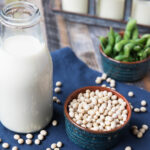 On your next shopping trip, rather than simply making your usual purchases, give yourself a little time to explore the shelves, in the dairy section especially. There are fantastic plant-based alternatives to dairy that weren’t available even a year ago. For instance:
On your next shopping trip, rather than simply making your usual purchases, give yourself a little time to explore the shelves, in the dairy section especially. There are fantastic plant-based alternatives to dairy that weren’t available even a year ago. For instance:
- rice, oat, almond or soya milks
- soya or coconut yogurts
- rice, coconut or soya ice creams
- plant-based ‘cheeses’ in block, sliced or grated form
- plant-based custard, double cream and ‘cream cheese’
You can restock your fridge with these and continue to make the same favourite dishes, but now without dairy. In fact, this segment of the market has become so varied and interesting that you have options! You can sample many different makes until you find those that suit your tastes.
Eggs used in baked foods perform two functions: they bind ingredients and they create volume or lightness in baked goods. Here are a few plant-based alternatives:
- 60ml of plant milk, water or other liquid will supply the moisture of 1 egg
- 1 Tablespoon tahini whisked into 60ml of liquid will add a binding effect
- 1 Tablespoon lemon juice or cider vinegar, combined with 1 teaspoon baking soda, adds the lightness of 1 egg, especially when stirred together at the last moment
- 70ml of apple sauce will help to bind and lighten, as for 1 egg
- 50g of plain tofu pureed with 2 Tablespoons of liquid will bind and lighten as for 1 egg
- Powdered egg-replacer can be purchased from the ‘free from’ section of your supermarket. Simply follow instructions on the packet.
Eggs used in main dishes are generally replaced by tofu:
- A pinch of turmeric added to tofu will give it the colouring of cooked eggs
- Tofu can be blended with soya milk to make a ‘custard’ for use in vegetable tarts
- Tofu can be cooked with onions, turmeric and spices to make delicious scrambled tofu
If you need to share gift ideas, put a tofu press or plant-milk maker on your wish list!
Adding Benefits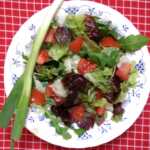
Moving from a vegetarian diet to a fully plant-based way of eating continues to add benefits to your personal health and that of the environment.
- The vegetarian diet has long been known to benefit the environment, with approximately 35% less greenhouse gas emissions than an animal-based diet. However, the vegan way of eating can slice further – up to 50% less greenhouse gas emissions than an animal-based diet.
- The nutrient concerns that were raised in earlier times have been resolved. A varied, plant-based diet can provide all the nutrients necessary for good health, at every life stage.
- Vitamin B12 is available from nutritional yeast flakes, yeast extract and many other fortified foods. It is produced by wholesome bacteria and is not derived from any animal product.
- Protein is available from every plant; a varied, whole food diet with sufficient calories will provide enough protein to meet requirements.
- Protein-rich foods are abundant in the plant-based diet, from nuts and seeds to grains and beans.
- It is now recognized that, provided you eat a variety of plant-based foods, there is no need to worry about combining proteins.
- There is no human nutritional requirement for meat and dairy.
Start as You Mean to Continue
The way to vegan good health is to eat a variety of whole, plant-based foods that are in season and organically or locally grown, if possible. Avoid eating only highly processed foods with little nutrient value. To maximize the rewards of a vegan way of eating, take this time of change as an opportunity to build long-term good health into your life, too.
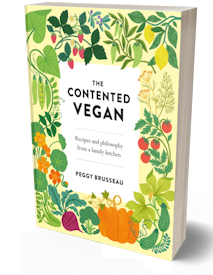
THE CONTENTED VEGAN is a complete guide to the emerging vegan lifestyle. Based on two decades experience of raising a vegan family.
Read Peg's Newsletter...
It's free & fun!
I don’t know if you find it hard to remember web links that are impossibly long and full of gobbledygook?
If you are, then I’ve got some good news…
We’ve made it incredibly easy for you to share a link to my book with your friends – in a way that doesn’t require a degree in programming!
Simply give them this link–
“get.veganbook.today”
No www or anything else – just get dot veganbook dot today. That’ll do the trick – try it!

